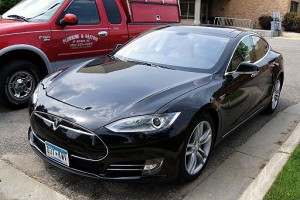 A false misconception regarding electric cars is that they are costly and slow in addition to going only for short distances. However, this traditional wisdom is set to be challenged by the introduction of new models such as Tesla’s Model S and Chevy Bolt. The launch of these models has a likelihood of giving battery-electric vehicles a significant position in the mainstream auto market. The new Tesla model is set to have one of the largest battery packs with a range of about 315 miles when fully charged.
A false misconception regarding electric cars is that they are costly and slow in addition to going only for short distances. However, this traditional wisdom is set to be challenged by the introduction of new models such as Tesla’s Model S and Chevy Bolt. The launch of these models has a likelihood of giving battery-electric vehicles a significant position in the mainstream auto market. The new Tesla model is set to have one of the largest battery packs with a range of about 315 miles when fully charged.
Tesla also reported that the new model will take only 2.5 seconds to launch from zero to 60, and will thus be the third-quickest production vehicle ever made. While this car will be quite expensive, Tesla also has a plan of introducing Model 3, which will cost about $35,000. This price tag will be quite a bit higher than that of the Chevy Bolt battery-electric car. According to one of the top research analysts, Scott Shepard, this high-range battery electric car will signify a major achievement in the auto industry. The production of new superior models coupled with improved battery technology will translate to a marked increase in sales.
Tesla is simply an example of a car manufacturer that will prove critics of electric cars wrong. This automaker will bring in new models to effectively address the challenges associated with battery-electric technology. The good news is that even more long-range cars are planned for production. Volkswagen intends to make a compact model that could achieve a range of 400 miles on a full charge. The performance will also improve steadily with automakers such as Porsche and Tesla planning to have cars that will take less than four seconds to launch from zero to 60.
A majority of potential purchasers have been discouraged by pricing. For instance, Model 3 isn’t the safest bet for those on a tight budget with the initial cost of version P100D being $134,500. However, Model 3 and Chevy Bolt that will enter the market next year will have a starting price range of $30-35,000. This price includes state and federal credits in combination with other incentives.
Charging has been a great challenge for electric cars as well, with standard cars taking 12 hours to charge when plugged onto a 120-volt outlet. It has been hard to find charging stations but recently more have been set up in many spots across the country. A notable example is in California, which has now become one of the largest electric vehicle markets.